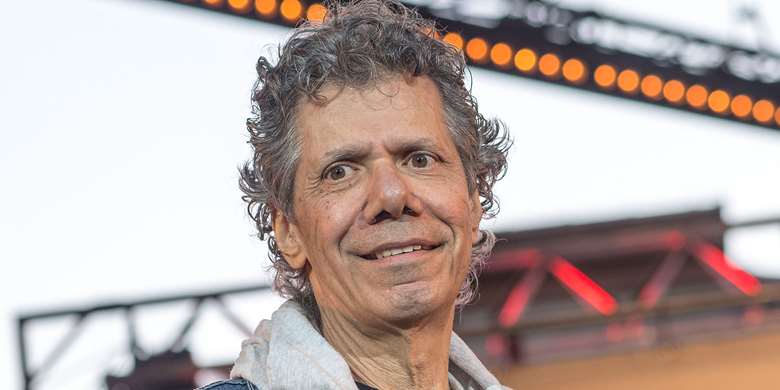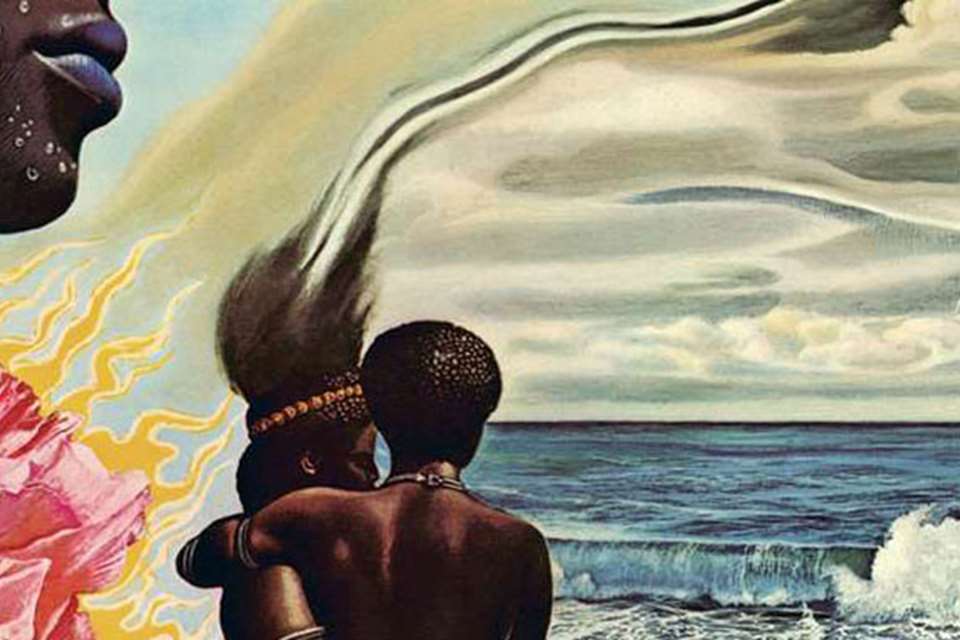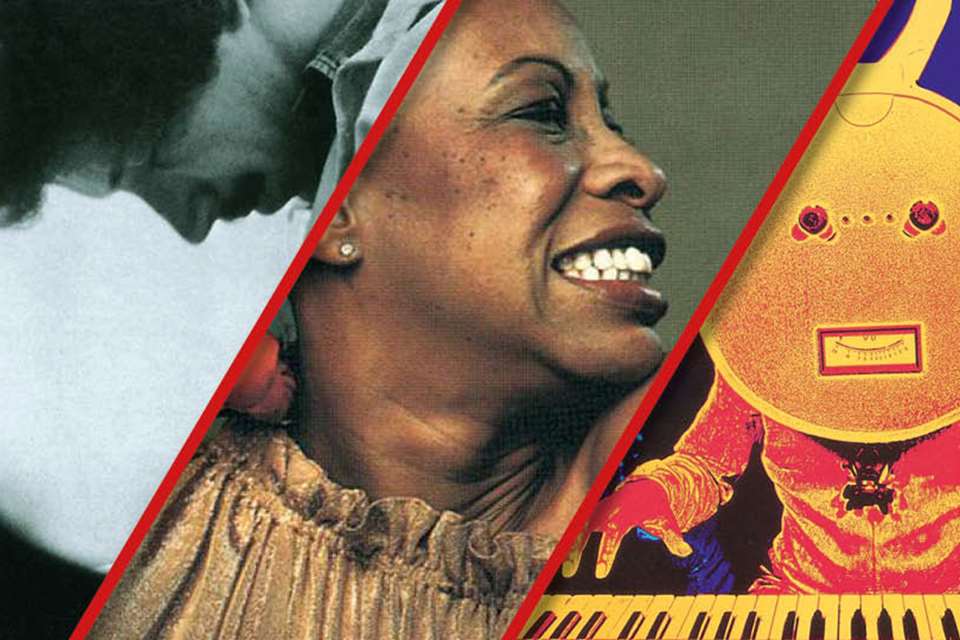Chick Corea | 13 Essential Albums
Friday, October 8, 2021
Chick Corea authored some of the most influential jazz recordings of the last 50 years. Here's selection of a few of his finest albums...

Chick Corea
Now He Sings, Now He Sobs
Blue Note (1968)
An album that caused a minor sensation among musicians when it was released in 1968 and should be in every jazz fan's collection. Stuart Nicholson
Chick Corea
Return To Forever
ECM (1972)
The first album by the brilliant acoustic version of Return To Forever that was so far ahead of its time it has not dated today in any way at all. Memorable for the way Corea elides what would become two jazz classics into one extended piece as ‘Sometime Ago’ metamorphoses into ‘La Fiesta.’ Stuart Nicholson
Chick Corea & Gary Burton
Crystal Silence
ECM (1972)
Recorded in one day for a small German label few had heard of in 1972, it was really the start of something big. Burton and Corea would tour the world, initially every year, then every other, for the following 45 years playing to sold-out houses, each musician drawing on a seemingly endless font of fresh ideas, leavened by learned and intuitive responses to each others’ playing and no little inspiration. The four albums they recorded (two more for ECM and one for Concord in 2008) garnered five Grammy Awards. The beginning of that exhilarating collaboration is Crystal Silence. Whether on the quicksilver ‘Señor Mouse’, the reflective (and seductive) title-track or ‘What Games Shall We Play Today’ (that had made an appearance on Corea’s brilliantly conceived, acoustic Return to Forever the previous year) this is jazz of the highest order. Spontaneously conceived, impeccably executed, like all jazz classics there is a timelessness about this music. Its multiple meanings and allusions are just as relevant to jazz today as they were back when they were committed to tape in the early 1970s. Stuart Nicholson
Return To Forever
No Mystery
Polygram (1975)
Inspired by John McLaughlin’s first edition of the Mahavishnu Orchestra, Chick plugs-in and this is the memorable result. The title track is wicked. Stuart Nicholson
Chick Corea and Gary Burton
In Concert, Zurich, October 29, 1979
ECM (1979)
An exquisite duo album of remarkably empathetic playing. Two masters at work, what more can you say? Stuart Nicholson
Chick Corea
Three Quartets
Stretch (1982)
This magnificent collaboration with Mike Brecker, Eddie Gomez and Steve Gadd from 1982 has never really been given the credit it deserves. If you want a classic album from the 1980s, then don’t overlook this. Stuart Nicholson
Chick Corea Elektric Band
Eye of the Beholder
GRP (1988)
A good representative album from the first edition of the Elektric band with ‘Tance Dance’ laced with Chick’s Spanish compositional influences. Stuart Nicholson
Chick Corea Akoustic Band
Alive
GRP (1991)
Exemplary piano trio jazz with Patitucci and Weckl hitting sublime heights on numbers like ‘On Green Dolphin Street’ and Corea’s own ‘Morning Sprite.’ Stuart Nicholson
Chick Corea & Origin
Origin
Stretch (1998)
A good representative album of the acoustic band Corea led between 1997-2003 with upcoming younger players such as Steve Wilson on saxes, Avishai Cohen on bass and Jeff Ballad on drums. Stuart Nicholson
Chick Corea
Rendezvous in New York
Stretch (2003)
Delightful ‘live’ anthology that brings Corea together on stage with musical friends he has made through the years at the Blue Note jazz club in New York. Stuart Nicholson
Chick Corea
The Vigil
Concord Jazz (2013)
This is Corea in his element, spurred on not only by a young band but also by old pals like Clarke who guests voluptuously on ‘Pledge For Peace’. The Vigil’s concept (this is Corea – there has to be a concept!) is that Corea after 50 years on the road now has to maintain a vigil to keep the spirit of music alive and pass it on to future generations. This literally is the case for Gilmore, the grandson of Roy Haynes who first played with Corea in 1967 and to whom the lyrically melodic ‘Royalty’ is dedicated. Corea’s piano is lithe with an emotional quality that can evade him, but here there is a passion that is matched by Garland’s ever urgent sax work. The cross generation narratives continue on ‘Pledge For Peace’, an expression of Coltrane’s past and present, as Ravi lays down a solo of power and subtlety. Masters from the past like Miles, Getz and Turrentine may all be referenced on The Vigil, but Corea, Garland and co. have combined to sing us all into the future. Andy Robson
Chick Corea
Trilogy
Concord Jazz (2013)
Chick Corea has been a part of the jazz furniture since the 1960s and it is perhaps tempting to take his great achievements in jazz for granted. So it’s worth reminding ourselves he has had to reinforce his mantelpiece to accommodate 20 Grammy Awards (he is in fact the fourth most-nominated artist in Grammy history), is a NEA Jazz Master and has authored some of the most influential jazz recordings of the last 50 years. Throughout, his creative spirit has never appeared to falter. Now aged 73, an age when most jazz musicians are content for an occasional tour to revisit their honourable pasts, Corea keeps up a demanding schedule pushing the envelope nightly – this set of free-flowing trio jazz was recorded live in Washington D.C., Oakland in California, Spain, Switzerland, Austria, Slovenia, Turkey and Japan. Corea’s accompanists – McBride and Blade – are from among that select few who breathe the heady air at the top of their profession. They are half his age but are swept along by the pianist’s restless creativity that succeeds in combining intensity – a lot of musical ideas are compressed into small spaces – with what some observers have called ‘impishness’ but what is, in effect, his musical audacity. Corea covers a lot of musical ground here, from the Great American Songbook to jazz standards (including his own composition ‘Spain’) to classical music; Scriabin’s ‘Opus 11, No. 9’ and his own classically inspired ‘Piano Sonata: The Moon’. The latter, effectively the centrepiece of this album set, lasts some 30 minutes and is a reminder of what a complete pianist Corea is – in the Mike Dibbs documentary The Art of Improvisation featuring Keith Jarrett there is a wonderful section where Jarrett and Corea combine on Mozart’s ‘Concerto No. 10 in Eb Major for Two Pianos’ where both pianists rise to the sublime majesty and challenge of Mozart, with Corea especially making it all appear so effortless. There is a precise analogy to be made with the music made here – it may sound effortless, but that conceals the craftsmanship, flair and sheer inspiration of the moment to create what is probably his finest work since he left ECM in the 1980s. Stuart Nicholson
Chick Corea
Trilogy 2
Concord Jazz (2019)
As the 78-year-old Chick Corea reminded UK audiences at this summer’s Love Supreme festival, wear and tear doesn’t touch the relish, grace and inventiveness with which he has performed in a multiplicity of styles all his life. But, as an early admirer of Bud Powell and Bill Evans, Corea has regularly returned to trio line-ups, and this one (with bass maestro Christian McBride and drummer Brian Blade) deservedly brought him two Grammys in 2014 for the first of its Trilogy sessions. Now comes the much-requested second, a double-album which discreetly sidesteps mentioning recording dates but which appears to have been drawn from various performances with the same partners in the US and Europe since late 2010. But whether recent or current, nothing stops Corea’s irrepressible musicality and pleasure in jamming with kindred spirits from exerting its melodiously laidback charm. ‘How Deep Is The Ocean’ kicks the collection off with a glossy masterclass in fresh lyrical invention and canny accompaniment, an eagerly impulsive ‘Work’ and a languid ‘Crepuscule With Nellie’ celebrate Corea’s affection for Thelonious Monk (and also his partners’ adroitness at the rhythm-juggling it invites), favourite Corea originals like ‘500 Miles High’, ‘La Fiesta’ and ‘Now He Sings, Now He Sobs’ are given freewheeling makeovers, and a throbbing and increasingly urgent account of ‘All Blues’ typically develops a high-stepping, dancelike feel that distinguishes it from its brooding source. Maybe Trilogy 2 is for Chick Corea completists, but it’s premier-league spontaneous music-making for all that. John Fordham
Never miss an issue of Jazzwise magazine – subscribe today















